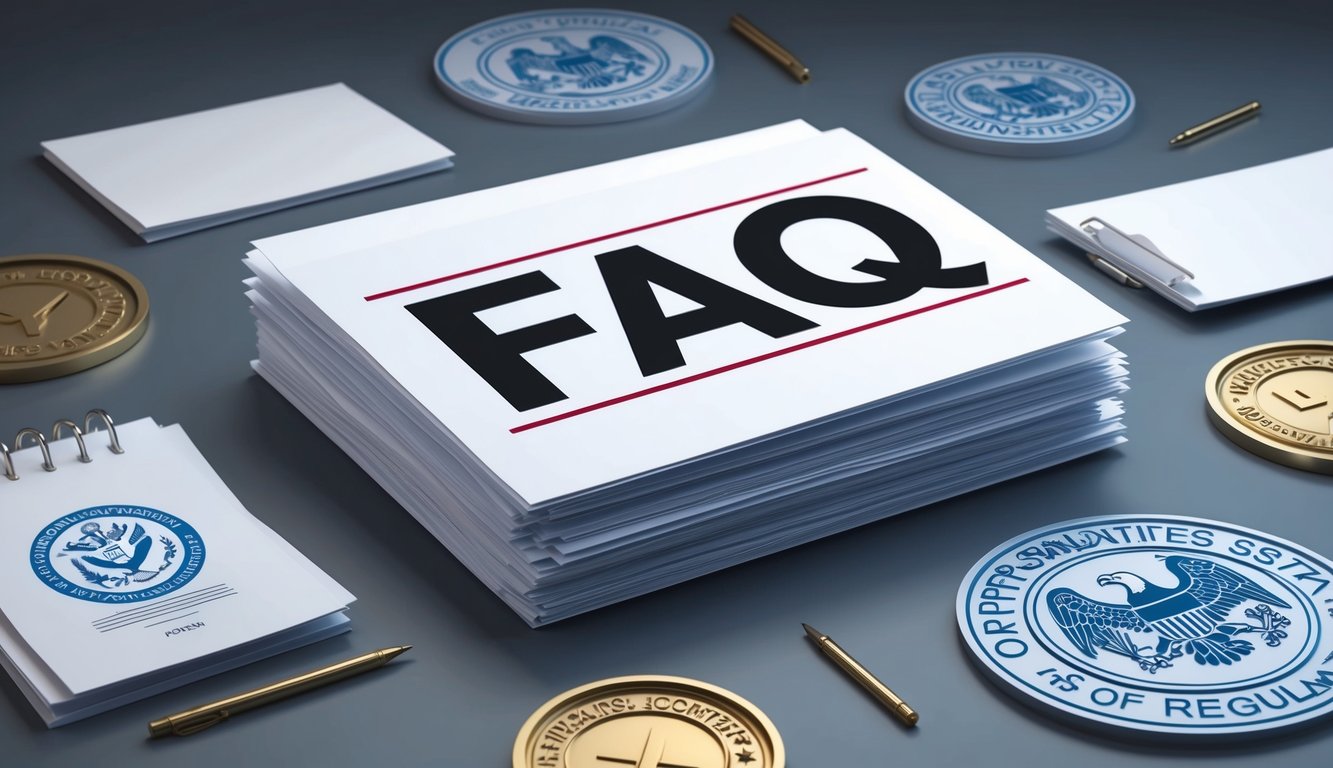Overview of State Regulations
State regulations play a crucial role in governing industries, including insurance.
They establish the framework within which businesses operate, ensuring compliance with laws intended to protect consumers and maintain market integrity.
You need to understand these regulations to navigate potential conflicts between state and federal laws.
Understanding Regulations and Statutes
State regulations are rules created by state agencies that provide details on how laws are implemented.
Statutes, on the other hand, are the laws passed by state legislatures.
In the insurance industry, regulations can dictate licensing requirements, financial solvency standards, and consumer protections.
Key aspects include:
- Regulatory Authority: Agencies like state insurance departments oversee compliance.
- Consumer Protection: Regulations may require transparency in policy terms and pricing.
- Enforcement Mechanisms: Agencies can impose sanctions for non-compliance.
Having clarity on these elements helps you navigate the regulatory landscape effectively.
Role of Secretaries of State
The Secretary of State serves as a crucial link between the public and the government.
This office typically oversees regulatory compliance across various sectors, including insurance.
Responsibilities include:
- License Management: Ensuring that insurance companies and agents are properly licensed.
- Record Keeping: Maintaining public records on licensing and regulatory actions.
- Regulatory Guidance: Providing support to businesses on how to comply with state laws.
Understanding the Secretary of State’s role can help you ensure your compliance with necessary regulations.
Federal Law vs. State Law
Navigating the relationship between federal and state law is essential.
In many cases, state laws can elaborate on or extend federal regulations but cannot conflict with them.
In the insurance sector, state laws govern things like:
- Market Conduct: States can regulate how insurers interact with consumers.
- Rate Approval: Many states require insurers to gain approval for certain rate changes, which is not mandated at the federal level.
It’s important for you to be aware of both state and federal regulations to avoid legal complications and ensure compliance in your operations.
State-Specific Legal Frameworks

Understanding the intricacies of state-specific legal frameworks is essential for navigating compliance effectively.
Each state has its own set of regulations and codes that govern various sectors, including the insurance industry.
Here’s a closer look at three distinct regulatory environments: Florida, Michigan, and Washington.
Florida’s Regulatory Environment
In Florida, the insurance industry is primarily regulated by the Florida Administrative Code.
This code outlines the rules and requirements that insurance companies must adhere to, including licensing, financial regulations, and consumer protections.
The Florida Department of Financial Services oversees these regulations.
It ensures that insurers operate with financial stability while protecting policyholders.
Key provisions include minimum capital and surplus requirements, which are crucial for maintaining solvency.
Additionally, the state mandates specific disclosure regulations regarding coverage terms and conditions, allowing you to make informed decisions about your insurance needs.
The Michigan Legal Landscape
Michigan’s insurance laws are encapsulated in the Michigan Compiled Laws and the Michigan Administrative Code.
These regulations outline the framework within which insurance companies operate, focusing on consumer protection and compliance.
The Michigan Department of Insurance and Financial Services plays a pivotal role in overseeing these regulations.
It requires insurers to maintain sufficient reserves, adhere to strict reporting standards, and implement fair claims practices.
In Michigan, specific regulations address various types of insurance, including auto, home, and health insurance, ensuring that you understand your rights and responsibilities as a consumer.
Code of Washington and State Legislation
The Revised Code of Washington governs the insurance industry within the state, detailing the regulatory framework that must be followed.
The Washington State Office of the Insurance Commissioner administers these laws, focusing on protecting consumers and maintaining market integrity.
Key aspects of the code include rigorous licensing requirements for insurers and agents, transparency in policy terms, and regulations on premium rates.
You should be aware of the rules around unfair practices and how they protect your interests.
Additionally, Washington’s laws provide specific guidelines for handling claims and ensuring timely payments, which is vital for your peace of mind as an insured individual.
Accessing Legal Resources

Access to legal resources is essential for navigating state regulations, especially within the insurance industry.
You can utilize a blend of digital databases, state law libraries, and government archives to obtain the necessary information for compliance and research.
Digital Databases and Westlaw
Digital databases offer a wealth of legal information. Westlaw is a leading platform, providing access to an extensive collection of case law, statutes, and regulations.
With its user-friendly interface, you can efficiently search for relevant state regulations affecting the insurance field.
To make the most of Westlaw, consider using advanced search features.
You can filter results by jurisdiction, date, or type of legal document.
Accessing code of regulations is streamlined, enabling you to find specific insurance laws swiftly.
Subscriptions to Westlaw can be a significant investment, but the breadth of information often justifies the cost.
State Law Libraries
State law libraries serve as vital resources for legal research.
These libraries house a comprehensive collection of legal texts including state statutes, case law, and administrative regulations.
Many libraries also provide free access to legal research databases.
You can often find reference librarians with expertise in navigating legal resources.
They can assist with finding specific regulations that pertain to the insurance industry.
Utilizing these libraries can save you the expense of private research services while providing reliable access to necessary legal materials.
Government Archives and Documentation
Government archives are another critical resource for accessing legal information.
These archives contain official documents, statutes, and historical records that can shed light on regulatory changes in the insurance sector.
You may find government information related to insurance regulations, compliance measures, and policy directives.
Many state websites offer access to legislative documents and proposed regulations, allowing you to stay updated on possible changes.
Ensuring you have the right documentation can be crucial for maintaining compliance and making informed decisions within the insurance industry.
Regulatory Processes and State Agencies

State regulations play a crucial role in ensuring compliance and safety within the insurance industry.
Understanding the processes involved in rulemaking, enforcement, licensing, and public access is essential for navigating the regulatory landscape effectively.
Rulemaking and Enforcement
In the insurance sector, state agencies are responsible for creating and enforcing regulations that ensure fair practices.
The rulemaking process typically includes a period for public comment, where industry stakeholders can provide input.
This ensures that proposed rules consider various perspectives.
Once rules are enacted, enforcement becomes vital.
State agencies, often led by a commissioner or a director, monitor compliance and investigate violations.
They have the authority to impose fines, revoke licenses, or mandate corrective actions, depending on the severity of the non-compliance.
Agencies like the Department of Insurance are pivotal in this framework.
Licensing and Inspections
Licensing is a fundamental part of state regulatory processes for insurance providers.
Each state mandates that insurers obtain a license before operating.
The licensing process involves thorough applications that require disclosure of financial data, business plans, and management qualifications.
Inspections are also common, serving to verify that insurers comply with regulations.
These include reviews of financial records and operational procedures.
Regular inspections help maintain market integrity and protect consumers by ensuring that insurers have the required solvency and ethical standards.
Transparency and Public Access
Transparency is vital in the regulatory framework for insurance.
State agencies provide resources that allow you to access information about regulations and compliance standards.
Websites often publish rule changes, enforcement actions, and meeting minutes to keep the public informed.
Moreover, state regulations typically outline your rights regarding accessing public records.
You can request documentation about licenses, violations, and inspections.
This access empowers you to make informed decisions when selecting an insurance provider, fostering an environment of accountability within the industry.
Political Activities and State Law

Understanding the intricacies of state laws regarding political activities is crucial, especially as they directly impact how you engage in activities such as running for office, lobbying, or financing campaigns.
This section will explore key areas governing political activities at the state level to equip you with the knowledge to navigate these regulations effectively.
Running Elections
State laws dictate various aspects of running elections, including the qualification requirements for candidates, election procedures, and the administration of voting processes.
Specific regulations may vary significantly between states.
For instance, states like California require candidates to file statements of candidacy and adhere to deadlines for ballot access.
You must ensure compliance with these legal parameters to avoid penalties or disqualification.
Additionally, election officials in each state oversee the conduct of elections to maintain fairness and transparency, which is pivotal in fostering public trust in the electoral process.
Lobbying Regulations
Lobbying is a significant aspect of political activity that is heavily regulated at the state level.
You may need to register as a lobbyist if you engage with lawmakers to influence legislation, especially in the insurance industry.
Each state has its own set of rules regarding who qualifies as a lobbyist and the types of activities that need to be reported.
For example, states like Florida require lobbyists to disclose their clients and report expenditures made to influence political outcomes.
Understanding these regulations helps you navigate the complex landscape while ensuring compliance with state laws, thereby avoiding potential legal issues or penalties.
Campaign Finance Rules
Campaign finance laws are crucial for anyone involved in political activities.
Each state has specific regulations governing contributions to candidates, limits on spending, and the types of permissible donations.
For instance, many states impose limits on individual contributions to campaigns, while also requiring detailed financial reporting.
You should be familiar with these limits, as violations can lead to hefty fines or legal ramifications.
Moreover, laws may vary in terms of transparency requirements, such as disclosing funding sources.
Staying informed about your state’s campaign finance rules is essential for compliance and to maintain the integrity of your political endeavors.
Frequently Asked Questions

State regulations affect various sectors, including childcare, healthcare, labor, and insurance.
Understanding these regulations is crucial for compliance and operational success.
How do state regulations impact child care centers?
State regulations for child care centers ensure the safety and well-being of children.
These regulations cover staffing ratios, health and safety standards, and background checks for caregivers.
Compliance with these regulations helps maintain quality care and protects the facility from legal issues.
What are the key state regulations in healthcare?
In healthcare, key state regulations include licensing requirements for medical professionals, facility standards, and patient privacy laws.
These regulations are essential for maintaining quality care and protecting patient rights.
You must remain informed about changes to these regulations as they can directly impact your practice.
Can you list the specific regulations for nursing homes at the state level?
State regulations for nursing homes often include staffing requirements, health and safety standards, and resident rights protections.
These regulations aim to ensure that nursing homes provide safe, respectful, and high-quality care for residents.
Familiarity with your state’s specific regulations is crucial for compliance and operational integrity.
How do labor laws vary from state to state?
Labor laws can vary significantly between states, impacting wage regulations, employee rights, and workplace safety.
Each state sets its own minimum wage, overtime rules, and labor protections that you must adhere to.
Understanding these differences helps you manage your workforce effectively and remain compliant.
What processes are involved in the creation of the Code of State Regulations?
The creation of the Code of State Regulations involves several steps, including drafting, public notice, and comment periods.
Regulatory agencies typically propose new rules, which undergo review before finalization.
Staying informed about these processes can help you anticipate changes that may affect your industry.
In what ways do local regulations differ from state regulations?
Local regulations can provide more specific requirements than state regulations, addressing community needs.
These differences may include zoning laws, business licenses, and additional health and safety standards.
You need to understand both local and state regulations to ensure full compliance in your operations.






